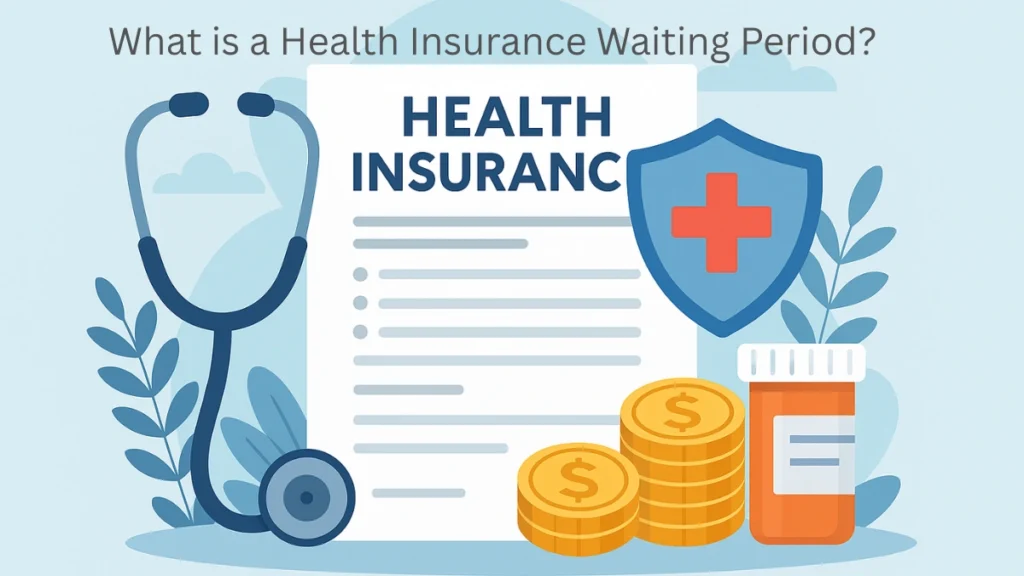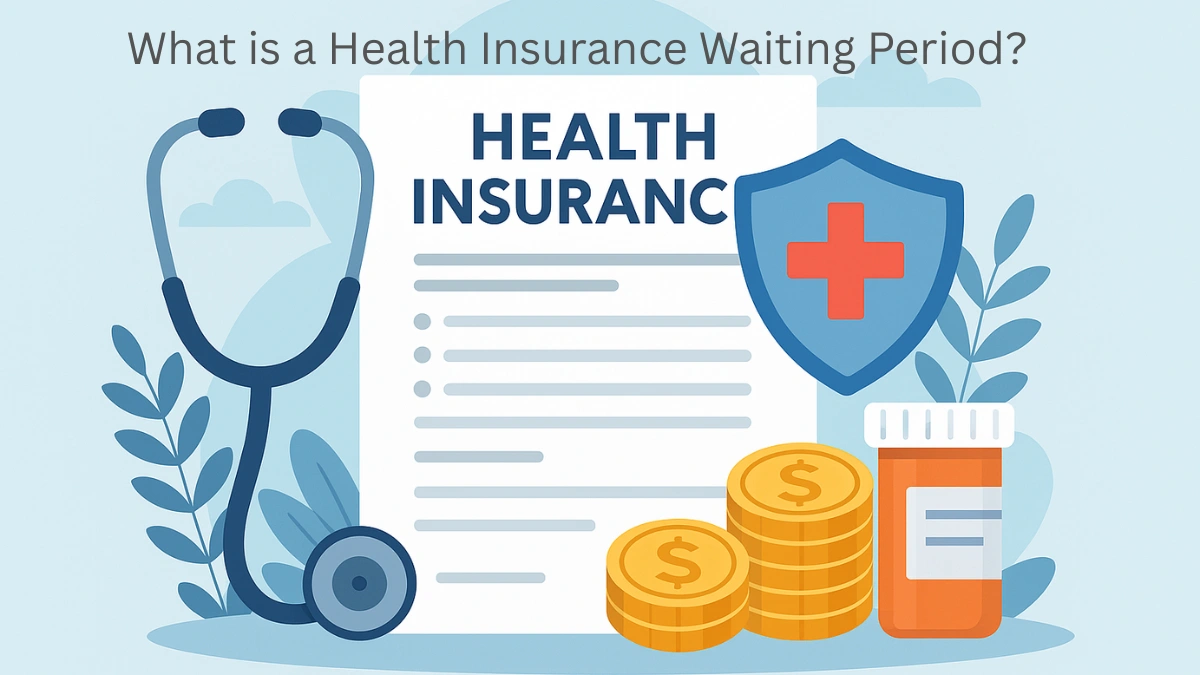Introduction
Health insurance is not just a financial backup, but a crucial shield against unexpected medical expenses. However, many people remain unaware of certain important terms like the waiting period and the detailed claim process. Lack of awareness often leads to rejected claims or delayed settlements during emergencies. This guide will explain what a waiting period is, why it’s applied, and how you can file health insurance claims quickly and smoothly.
What is a Health Insurance Waiting Period?

A waiting period refers to the specific duration after purchasing a health insurance policy during which certain illnesses or treatments are not covered. You have to wait for this period to finish before making a claim for those specified conditions.
Types of Waiting Periods:
Initial Waiting Period:
- Lasts for 30 days from the date the policy becomes active.
- Only accidental hospitalization claims are covered during this time.
Pre-Existing Disease (PED) Waiting Period:
- Applies to any illness or condition you already had before buying the policy.
- Typically ranges from 1 to 3 years.
Specific Illness Waiting Period:
- Covers specific medical procedures such as cataract surgery, hernia operations, and joint replacements.
- Usually spans between 1 to 2 years.
Maternity Waiting Period:
- Covers expenses related to pregnancy and childbirth.
- Often ranges from 9 months to 3 years.
Why Do Insurers Impose a Waiting Period?
Insurance companies apply waiting periods to prevent misuse of policies. It ensures people don’t buy insurance only when they foresee immediate medical expenses. It also helps keep premium rates affordable for genuine long-term policyholders and allows insurers to manage risk efficiently.
How to Know Your Policy’s Waiting Period?
It’s essential to know your policy’s waiting periods. Here’s how you can check:
- Go through your health insurance policy document carefully.
- Look for sections like ‘Exclusions’, ‘Limitations’, or ‘Waiting Periods’.
- Consult your insurance agent or customer care executive.
- Visit your insurer’s official website for policy-specific details.
How to File a Health Insurance Claim in 2025
There are two main types of claims you can make:
1. Cashless Claim Process:
- Pick a hospital listed under your insurance company’s network hospitals.
- Show your health card at the hospital reception.
- The hospital will send a treatment request to your insurance provider.
- On approval, you get treated without paying from your pocket.
- The insurer directly settles the bill with the hospital.
2. Reimbursement Claim Process:
- Use this if you opt for treatment in a non-network hospital.
- Pay all medical expenses upfront.
- Collect all original bills, discharge summaries, prescriptions, and reports.
- Send the completed claim form and all necessary documents to your insurance company.
- The insurance company reviews your claim and reimburses the approved amount within 7 to 15 days.
Documents Required for Claim Processing
- Duly filled claim form.
- Health insurance policy copy.
- Identity proof.
- Discharge summary from the hospital.
- Original medical bills and payment receipts.
- Doctor’s prescriptions and investigation reports.
Pro Tips for Smooth Claim Settlement
- Always inform your insurer within the notified time.
- Keep digital and physical copies of all medical records.
- Never hide pre-existing conditions at the time of buying the policy.
- Prefer cashless treatment at network hospitals for quicker settlement.
- Check your waiting period clauses before hospitalization.
- Track your claim status through the insurance company’s online portal.
What to Do If Your Claim Gets Rejected?
If your health insurance claim is denied:
- Understand the reason mentioned in the rejection letter.
- Contact the insurer’s grievance cell for clarification.
- If the issue remains unsolved, take it up with the Insurance Ombudsman for further resolution.
- You can also lodge a complaint with the IRDAI’s grievance redressal portal.
Conclusion
A thorough understanding of waiting periods and the claim process can help you avoid surprises during medical emergencies. When you know the policy conditions in advance and follow proper procedures, your claim settlement experience becomes simple and hassle-free.
Stay informed and make sure you read your health insurance policy documents carefully before relying on the cover.
Health protection is wealth protection. Choose wisely, claim responsibly.

Narendra Singh is the founder of this website. He has considerable experience in the hotel industry. Through his articles, he expresses his views to make people aware of the evils going on in the society and to avoid them. To fulfill this objective, he has switched his 18 years long career of the hotel industry and entered in his favorite and interesting career, media. He not only warns against social evils, Rather, by using the Right to Information Act 2005, they expose social evils and inform the concerned department for action against the culprits.

